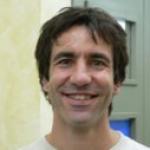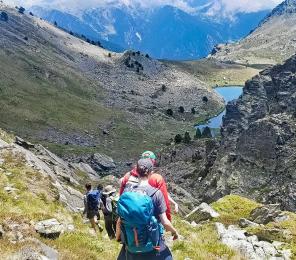
Bernat Claramunt-López, Ph.D.
Dr. Claramunt-López (He, His, Him) is an ecologist that loves mountains. He wants to understand how mountain communities, especially the ones at high elevation, are adapting to changing environmental conditions and to an increasing anthropic pressure. He is also interested in how research policies can help mountain regions tackle global change in the next few decades. He is the coordinator of the Network for European Mountain Research (NEMOR), a co-author of the Strategic Research Agenda for Mountains (2016) led by MRI-Europe, and a member of the Scientific Committee of the Pyrenean Observatory of Climate Change (OPCC).
What do you find most interesting about the Pyrenees?
For a scientist interested in the future of natural communities, they are—maybe unfortunately—a perfect place to work. Most global change models predict notable changes in Mediterranean regions, and the Pyrenees are at the core of one of them. Some evidence of these changes, such as decreased snow cover, is already easy to see. Also, the orography [topography] of the Pyrenees, as of all mountains, makes some gradients occur very close together. So changes in the composition of natural communities can appear more clearly than they would in flat regions. And needless to say, it is a pleasure working in mountains with extraordinary landscapes.
What is one of your favorite moments in the field?
I think I decided that I wanted to work in the Pyrenees when, at around age 12, I spent hours watching small streams at high elevations for invertebrates or building my own hide to spot birds. Another great moment came after I was a scientist: the first time I held an alpine marmot in my hands and was responsible for manipulating wildlife. Magic, and scary. A third happened during research on the diet of golden eagles. We rappelled to a nest that turned out to be huge—I could lie down perfectly in it! Some weeks later, we captured a golden eagle to install a GPS. Its claws were as big as my hands, and its look told me, “Be careful, I'm watching you.”
Education
- Ph.D. in ecology, University of Barcelona (Spain)
- B.S. in biology, University of Barcelona
